
Veterans Challenge Islamophobia
London, 29 Rajab 1437/07 May 2016 (MINA) – There is a striking asymmetry about two pieces of theatre that end this week in London. Today is the British capital’s mayoral election, after an ugly campaign in which his main rival focused on the Muslim faith of Labour Party candidate Sadiq Khan. And this is the week that London bids a fond farewell to a play that promoted understanding of the Muslims in their midst.
The play, Another World, is about the shadowy universe dreamt up by ISIL. Chiefly, it asks why ISIL’s world?—brutal, austere and unforgiving, by every deserter’s account?—draws young people from around the world. Another World, by the director Nicolas Kent, tries to understand why young European Muslims might be attracted to ISIL.
Using verbatim interviews with the families of young men and women who left for Syria, the evidence is slowly and painfully uncovered?—a sense of alienation for the darker-skinned second-generation immigrant Moroccan boy in Brussels; a young woman’s passionate desire to “do something” with her life, which leads her to Syria; a tender-hearted young man’s anger at the suffering of Palestinians, Mi’raj Islamic News Agency (MINA) reported, quoting the National.
By means of the real stories and the actual words spoken by three mothers?—?the confusion of emotions and the realisation of loss?—?the play exposes the unrecognised contours of the problem. In Molenbeek, the Brussels suburb that has come to symbolise Belgium’s (and Europe’s) struggle with jihadism among its own nationals, young people’s attraction to ISIL alternately appears to be adolescent angst, youthful experimentation with identity politics and teenage rebellion against the state of the world.
Also Read: Mamdani Ready for Dialogue with Trump, as long as it Benefits New Yorkers
But the play also takes the long view. Was the concept of a global jihad invented during the US-backed pushback against Soviet troops in Afghanistan? Isn’t it hilarious that a London born-and-bred Muslim youth can be told to “go back home” by a group of young Frenchwomen visiting the UK?
Particularly noteworthy is the play’s attempt to interpret between two worlds without prescribing any solution other than understanding and empathy. This was never more badly needed than now.
On both sides of the Atlantic, as the Washington human rights advocacy group Freedom House recently pointed out, the politicians who prescribe exclusivist answers are the ones who are being cheered: “Build a wall, crush the terrorists, protect the fatherland.”
This is why the London mayoral campaign has been unmistakably tinged by Islamophobia. Mr Khan, who is the favourite to win, has been constantly attacked as a friend of “terrorists” by the Conservative candidate Zac Goldsmith. On Sunday, he wrote an article in a popular tabloid, suggesting that Mr Khan “repeatedly legitimised those with extremist views”.
Also Read: YouTube Removes Hundreds of Videos by Palestinian Human Rights Groups
The article, illustrated with a photograph from the July 2005 London bombings, appeared to stoke fears that electing the first Muslim mayor of Europe’s largest city would somehow leave it vulnerable and exposed.
Rising Illiberalism
The rise of illiberalism discerned by Freedom House, especially towards Muslims, is evident elsewhere too.
Also Read: YouTuber Ms. Rachel Wears Gaza Children’s Artwork Dress at Glamour Magazine Awards
At the weekend, Germany’s right-wing anti-immigrant party Alternative für Deutschland proposed a violently anti-Islam agenda in the heart of Europe.
Rising illiberalism is why US Republican Party presidential front-runner Donald Trump was able to say just a few weeks ago: “I think Islam hates us.” It is why Khairuldeen Makhzoomi, an Iraqi refugee student at Berkeley, was thrown off a domestic airline for speaking Arabic.
It is also why France’s prime minister Manuel Valls was able to publicly muse on whether Islam could ever be “compatible” with French secularism. And it is why Britain’s Channel 4 could broadcast a documentary that claimed to reveal What British Muslims Really Think. It appeared to have found another world, an alternative reality from the one lived by most Britons, which included support for female subservience and suicide bombers.
The problem with recording instances of Islamophobia in the West is that they are racking up too fast now and each seems more outrageous than the last. Just a few months ago, the swipes at Mr Khan’s religion would have seemed inconceivable in a Britain that is bound by the convention that political language should be parliamentary and fair.
Also Read: White House: President Trump to Meet Syrian President
No one would have thought it possible that a man seeking America’s highest office?—and control of the nuclear codes?—could insult a world religion and all its 1.6 billion followers and still remain a viable candidate. That in Germany, which has the largest Muslim population in Europe, a rising new party with ambitions to become a political force can jeer a lone delegate’s plea for dialogue with Muslims.
Much of the West appears to be caught in a dangerous new turbocharged cycle?—the fear of terrorism and fear of Muslims. This is a dangerous inflection point with the unsayable becoming the new political speak. This abrasive new way of telling it like it supposedly is?—in Britain, France, Germany, America?—is triumphantly shorn of political correctness. It disdains the gentle art of envisioning an inclusive society, whatever the struggles along the way.
That message is now in danger of seeming out of sync with the dangerous new reality of security issues and social integration. The only people still committed to unity-in-diversity are those who put on plays such as Another World. That’s something but it’s not enough. (T/R07/R01)
Mi’raj Islamic News Agency (MINA)
Also Read: Zohran Mamdani Elected First Muslim Mayor of New York City in Historic Victory









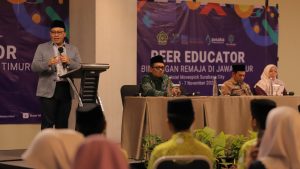
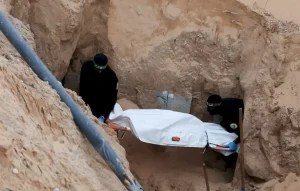
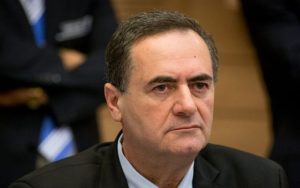



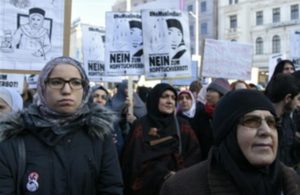
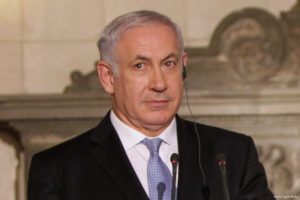
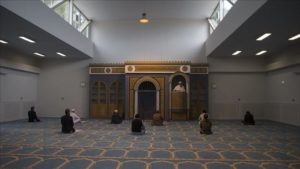

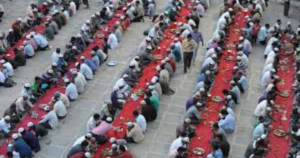



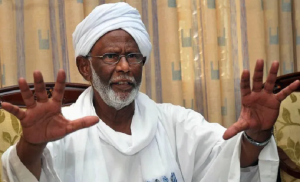

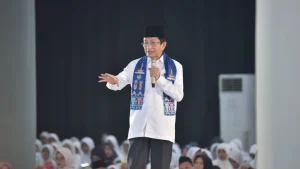
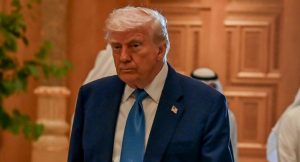
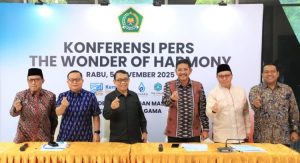

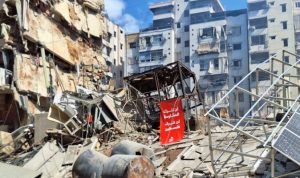





 Mina Indonesia
Mina Indonesia Mina Arabic
Mina Arabic